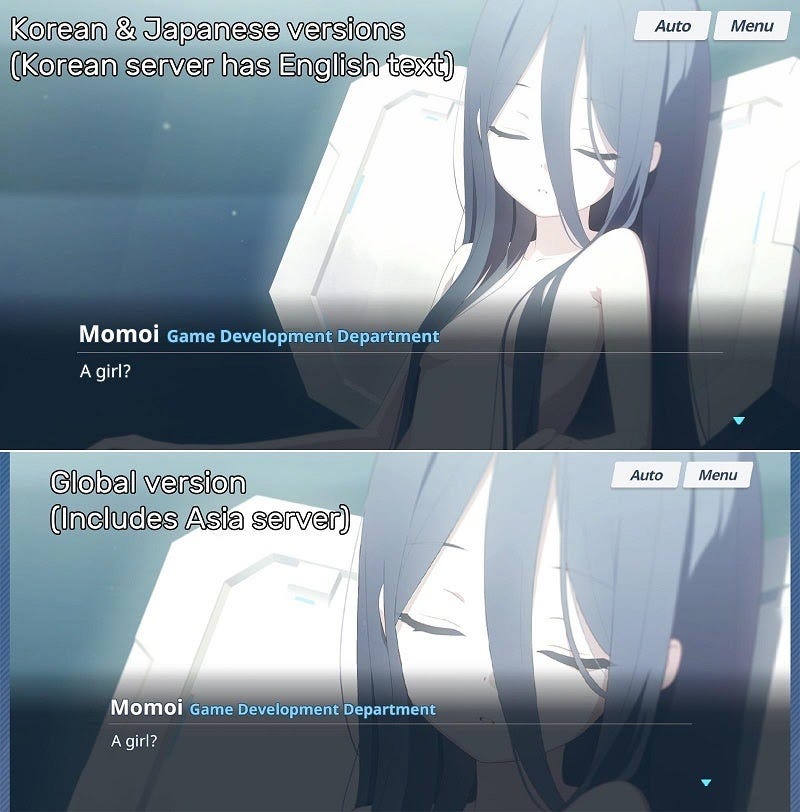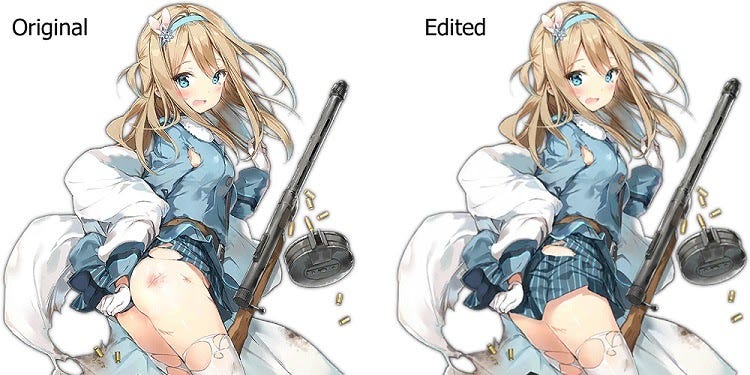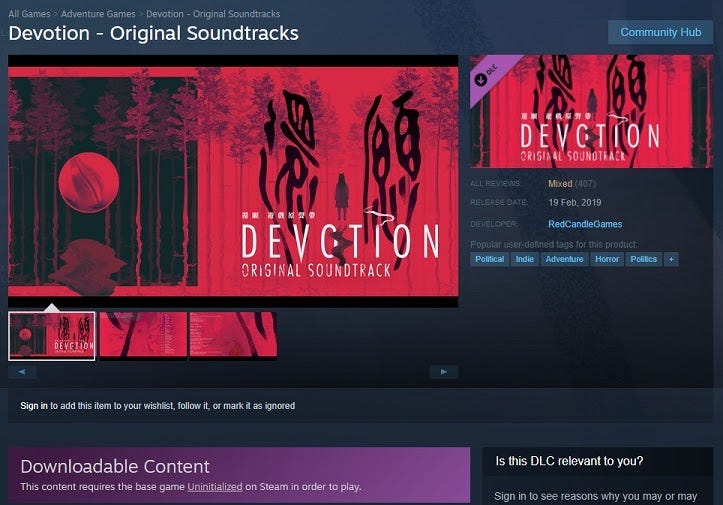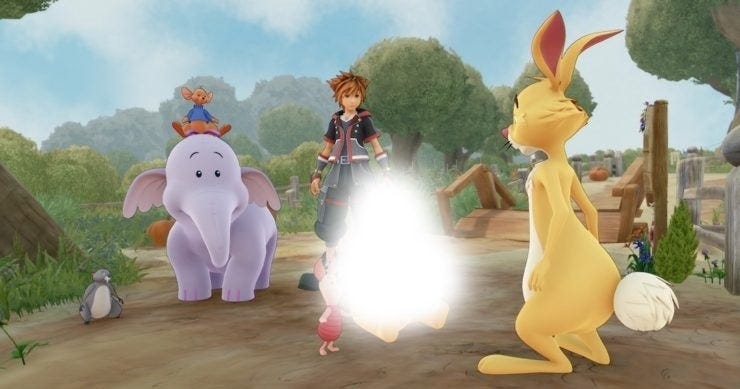People should be plenty familiar with censorship in their media: be it books, shows, games, the whole works. Reasons for doing so tend to be either due to government restrictions, or making said media “safer” for usually younger audiences.
What About Censorship?
When it comes to games, the gavel of censorship has come down on Genshin Impact, and prior to that, Blue Archive, to name but two relatively high profile incidents. Some might dub this kowtowing to the demands of the powers that be, and “losing integrity”, or “not respecting the original intention” of a given work. All things considered, the two examples provided are relatively mild forms of censorship, as we can discuss further below.
How to Censor?
Minimal Alterations
Blue Archive went with this route for this particular instance of censorship. From the comparison shots, we can reasonably guess that the character in question is still nude, but the Global version opts for a zoom-in / crop, merely changing the perspective in which you view the scene.
Redesigns
Besides the (at time of writing) upcoming changes to Genshin Impact, Girls’ Frontline has had to make these ‘redesigns’ for various characters. These changes were primarily for the ‘damaged’ artwork that you could get if the characters took too many hits during gameplay, making them look quite revealing. The edits are in by default due to the regulations Micateam had to comply with, with a relatively easy - if unofficial - way to ‘decensor’ the artwork.
Complete Removal
While I could point to Azur Lane getting its various ship girls removed from the Chinese version of the game, Red Candle Games’ Devotion’s removal is one I consider a much bigger deal. As of the time of writing, only the soundtrack is still available on Steam. If you try finding the base game or its community posts, you’ll only be redirected to Steam’s storefront. Fortunately, Devotion is presently available to be purchased through the developer’s online store, two whole years since a review bomb by vitriolic Chinese netizens forced it under. The incident was over a reference to China’s President, Xi Jinping, being likened to Winnie the Pooh and seen as offensive.
For two years—a year if you managed to get a Taiwanese physical release edition—experiencing a game first-hand that is considered valuable enough to be preserved in the Harvard-Yenching library, was simply not an option.
Whether you see it as ‘censorship’ or not, people who fall from grace may also get references to them removed, or replaced. See Ai Kayano, who had her voicework removed and her character in Arknights recasted, for one. The fans who enjoyed her portrayal may consider this too harsh, with the inciting incident seen as relatively minor.
“When” to Censor?
The ‘easiest’ way is to not include anything that could be potentially inflammatory, so that there’s no need for censorship to begin with. However, taking games as a medium and a platform to use to ‘challenge’ the so-called norms, completely sanitizing media is hardly worth losing the fight. Representation matters, and there remain the powers that be which are skittish over things they see as deviant.
Fire Emblem Fates had the option to be more ‘intimate’ with your chosen characters, dubbed ‘skinship’, in its Japanese release. The international release removed this feature, and fans were divided. It comes down to “It’s a strategy game first and foremost, it doesn’t matter” or “It’s removing content, it should be an option”. The end product saw everything retained minus the actual ‘mini game’.
When it comes to hiding several inches of skin on some fictional character, that’s hardly anything to kick a fuss about as it doesn’t change the game besides the revealing factor—though of course, review bombs would beg to differ. Removing references or replacing someone’s work due to scandals is wholly understandable. Pushing something like Devotion out is completely different, its detractors excising it for material that isn’t even the main point of the game.
Granted, as nice as it is to have the freedom to tackle ‘heavier’ subjects, having fair warnings and restrictions are necessary. Ensemble Stars! had a time when it raised its apps’ age rating and/or minimum age to 17+, presumably to allow the game’s art and/or story to avoid any censorship. At the time of writing, it has since been set to 12+ on iOS, or E for Everyone on Android.
All in all, there are shades to consider in terms of censorship. Whether you like it or not, policies can make or break a work’s ability to even exist, much less get distributed to a wider audience. That cost may be well worth paying, to work with what rulings that are in place.
What We Learned:
Censorship can be anywhere between very minor changes, to complete removal
It’s not the best feeling, but companies still do have to comply with regulations
Changing ratings / adding content warnings could help reduce the need for alterations
If you liked our feature, go ahead and forward this email to your friends, or:
Feature by Kit Chew, unfazed by censored skin
The Ejen Ali fandom is wild.
From zombie games to dating sims, the China live stream ban stretches wide.
When you take “gotta catch ‘em all” too seriously.
How did you find this issue of the GamerBraves Newsletter? Leave your comments below or let us know your feedback privately.
Want more GamerBraves content? Simply follow these links:










